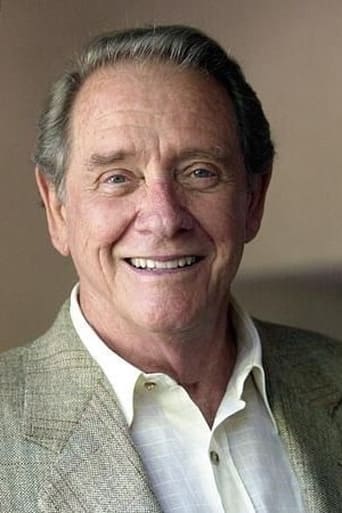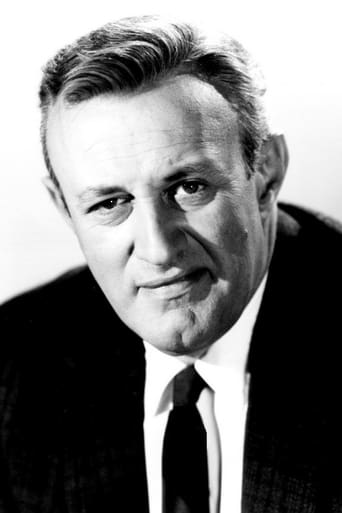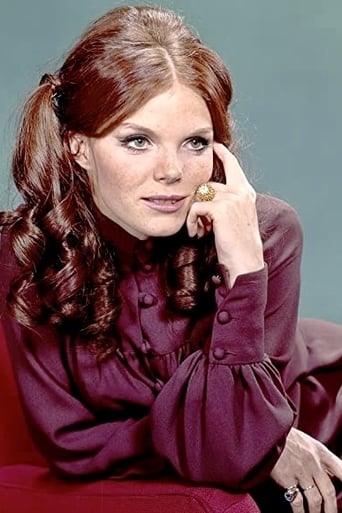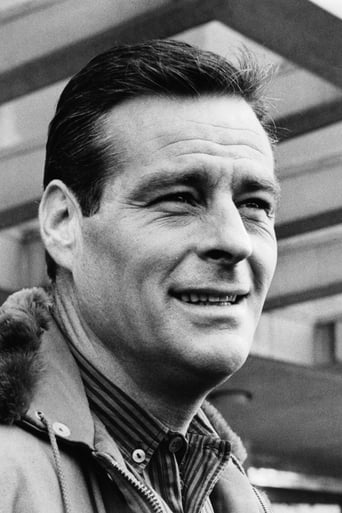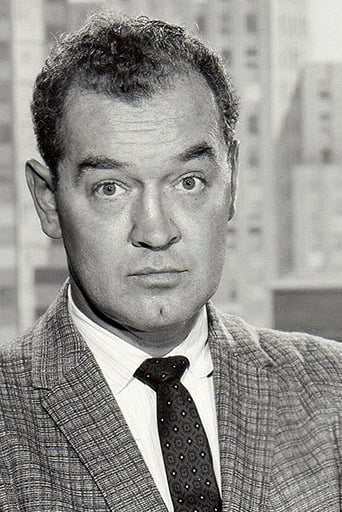Teringer
An Exercise In Nonsense
MoPoshy
Absolutely brilliant
Janae Milner
Easily the biggest piece of Right wing non sense propaganda I ever saw.
Scotty Burke
It is interesting even when nothing much happens, which is for most of its 3-hour running time. Read full review
moonspinner55
Los Angeles insurance salesman in his late 30s is seduced by the wife of one of his clients, who gives him the idea of taking out an accident insurance policy on her husband without his knowledge. If he's killed, the wife receives $200,000--if he's killed on a train, the amount is doubled. Writer Steven Bochco had the daunting task of compressing James M. Cain's crime novel into a 75-minute movie for television. Bochco must have known how unnecessary the whole idea was, especially since no amount of effort could even hope to get the project out from the shadow of Billy Wilder's classic 1944 version. The three leads (Richard Crenna and Samantha Eggar as the illicit lovers, Lee J. Cobb as Crenna's boss) go through the motions dutifully, but nothing here feels fresh.
mrb1980
When someone remakes a classic movie, the remake is always unfavorably compared to the original. Also, there's a chance that the remake is so radically different that it is just too unfamiliar to audiences.Well, the 1973 TV version of "Double Indemnity" has almost identical scenes and dialogue as the 1944 original. The main difference is that the remake just seems to have no energy at all. Fred MacMurray was great as the lecherous, leering insurance agent Walter Neff in the original; Richard Crenna just seems world-weary and tired. Edward G. Robinson brought great manic energy to his role as MacMurray's boss Barton Keys; Lee J. Cobb, a fine actor, appears almost bored with the proceedings. Samantha Eggar is all wrong as the conniving, back-stabbing Phyllis Dietrichson; while Barbara Stanwyck was just superb in this wicked role, Eggar is overly polite and mannered and just seems way out of place.Robert Webber, in the old Richard Gaines role as Robinson's boss Norton, and John Fiedler taking the Porter Hall role as the crucial witness, bring some life to the movie. In particular, Webber recreates the Norton role well in a 1970s context.However, after the movie starts, the whole thing just sort of lies there, without any life or electricity. This is one film that never should have been remade.
IFeedPigeons
Utter dreck. I got to the 16 minute/27 second point, and gave up. I'd have given it a negative number review if that were possible (although 'pissible' is a more fitting word...). Unlike the sizzle you could see and practically feel between MacMurray and Stanwyck in the original, the chemistry between dumb ol' Dicky Crenna and whats-her-face here is just non-existent. The anklet becomes an unattractive chunky bracelet? There's no ciggy-lighting-by-fingertip? And I thought I'd be SICK when they have a mortified-looking (and rightly so, believe you me) Lee J. Cobb as Keyes practically burping/upchucking his way through the explanation of his "Little Man" to Mr. Garloupis. No offence to the non-sighted, but it looks as though a posse of blind men ran amuck with the set design of both the Dietrichson and Neff houses. The same goes for those horrid plaid pants that Phyllis wears. And crikey, how much $$ does Neff make, that he lives overlooking a huge marina? This, folks, again, all takes place in the first 16 and a half minutes. If you can get through more of it, you have a much stronger constitution than me, or you are a masochist. But please, take some Alka-Seltzer first, or you WILL develop a "little man" of your own that may never go away. Proceed with caution, obviously.
J. Spurlin
This 1973 TV remake of the Billy Wilder classic is inferior to the original. Surprise!First, the good things. Lee J. Cobb makes a terrific Barton Keyes. He's not as good as Edward G. Robinson, of course, but he's the only reason to watch this. This remake's only improvement over the original is that it cuts down the role of Lola Dietrichson, the step-daughter of the femme fatale, Phyllis Dietrichson.And that's it for the good things.The bad things are many. The director records everything in an indifferent manner: if you watched the film with the sound muted you'd hardly get the impression that anything especially interesting was happening. Because of modern bad taste, the film must be in color instead of black and white. Because of 1970s bad taste, all the sets are distractingly ugly. Walter Neff's expensive apartment, in particular, is hideous.The modern setting hurts in a lot of small ways. Train trips were a bit more unusual in the 70s than in the 40s, so Mr. Dietrichson's decision to take a train seems more of a contrivance. Men stopped wearing hats, which prevents Walter from covering up his brown hair while posing as the white-haired Mr. Dietrichson. Women in mourning stopped wearing veils, which robs Samantha Eggar of a prop Barbara Stanwyck made splendid use of in a key scene. (Oddly, Lola still has the line where she reveals that her stepmother was trying on a black hat and veil before she had need of them.)Stephen Bochco keeps much of the Billy Wilder-Raymond Chandler script the same. But he makes a lot of tiny, inexplicable changes to the dialogue which leave the script slightly flabby where once it was lean and muscular. Outrageously, the famous motorcycle-cop banter is gone, but look closely and you'll see what looks like a post-production cut where those lines should have been. Bochco may not be to blame.Richard Crenna is passable as Walter Neff. What might have made this version tolerable is a really splendid Phyllis Dietrichson. Instead we get Samantha Eggar, who comes off like a standard-issue villainess from "Barnaby Jones." But who can blame Eggar? With a director who barely seems interested in what's happening in front of the camera, how could Barbara Stanwyck herself have come off well?
